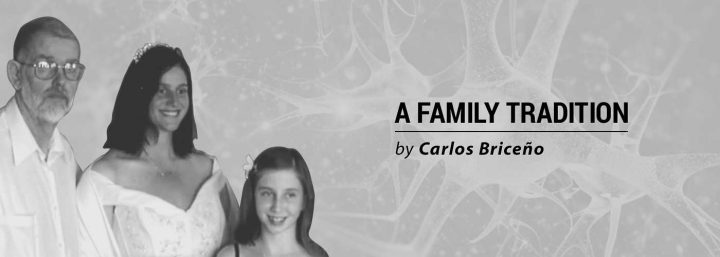Overcoming Denial in the Face of Huntington’s Disease

The Huntington’s Disease Society of America held its annual conference in early June. Like many events these days, it was virtual, which made it super convenient to attend.
I watched several sessions, including “Preparing for the Change That Will Come” and “Support Group for Caregivers.” I like to have a beginner’s mind at conferences because it’s a great way to learn, and I know there’s a lot I need to understand about Huntington’s.
As a journalist, I’m big on confidentiality, so nothing I’m going to share in this post will betray anyone’s confidence. I’m going to deal with generalities. Because of my beginner’s mindset, I was open to what was said, and, in observing and listening to the experts and the participants, I noticed that the subject of denial kept recurring in the exchanges.
It’s something I already knew anecdotally, but it startled me to hear so many people bring up examples of denial in their families.
In thinking about it since, it makes sense. Denial is the first stage of grief. Huntington’s has a monopoly on that subject; the illness leads to motor, cognitive, and neuropsychiatric impairments that devastate a person’s quality of life.
Whether you have been diagnosed with the disease, have a 50% chance of getting it, or someone you love has it, it makes sense that your mind doesn’t want to wrap itself around the overwhelmingly negative realities that may await you or your loved one. The mind just wants to protect itself. It wants to deal with gumdrops and lollipops while Huntington’s wants to punch you or your loved one in the face with a giant fist.
I learned about denial when my eldest sister was diagnosed with cancer. For months I pretended her illness was going to go away; sadly, she later died from it. I realized this was not a healthy way to help a loved one.
It takes courage and perseverance to fight an illness or to help someone fight an illness. It also takes courage and perseverance to overcome denial. As afraid as you are to take a genetic test, or to acknowledge that you or a loved one have the disease, what’s worse is not learning how to live fully. And part of living fully means understanding how to confront your fears and help someone else confront their fears, too.
“I learned that courage was not the absence of fear, but the triumph over it,” wrote Nelson Mandela in “The Long Walk to Freedom.” “The brave man is not he who does not feel afraid, but he who conquers that fear.”
And to elaborate on what Mr. Mandela said even further, I leave you with a quote from Eleanor Roosevelt, from her “My Day” newspaper column: “It takes courage to love, but pain through love is the purifying fire which those who live generously know. We all know people who are so much afraid of pain that they shut themselves up like clams in a shell and, giving out nothing, receive nothing and therefore shrink until life is a mere living death.”
In other words, for all you caregivers out there, one tip to overcome denial is to love.
And to love.
And to love some more.
You will find courage in that love, and in finding courage, you will conquer your fears — and, hopefully, your loved one’s fears — and overcome any denial.
***
Note: Huntington’s Disease News is strictly a news and information website about the disease. It does not provide medical advice, diagnosis, or treatment. This content is not intended to be a substitute for professional medical advice, diagnosis, or treatment. Always seek the advice of your physician or other qualified health provider with any questions you may have regarding a medical condition. Never disregard professional medical advice or delay in seeking it because of something you have read on this website. The opinions expressed in this column are not those of Huntington’s Disease News or its parent company, Bionews Services, and are intended to spark discussion about issues pertaining to Huntington’s disease.







Leave a comment
Fill in the required fields to post. Your email address will not be published.